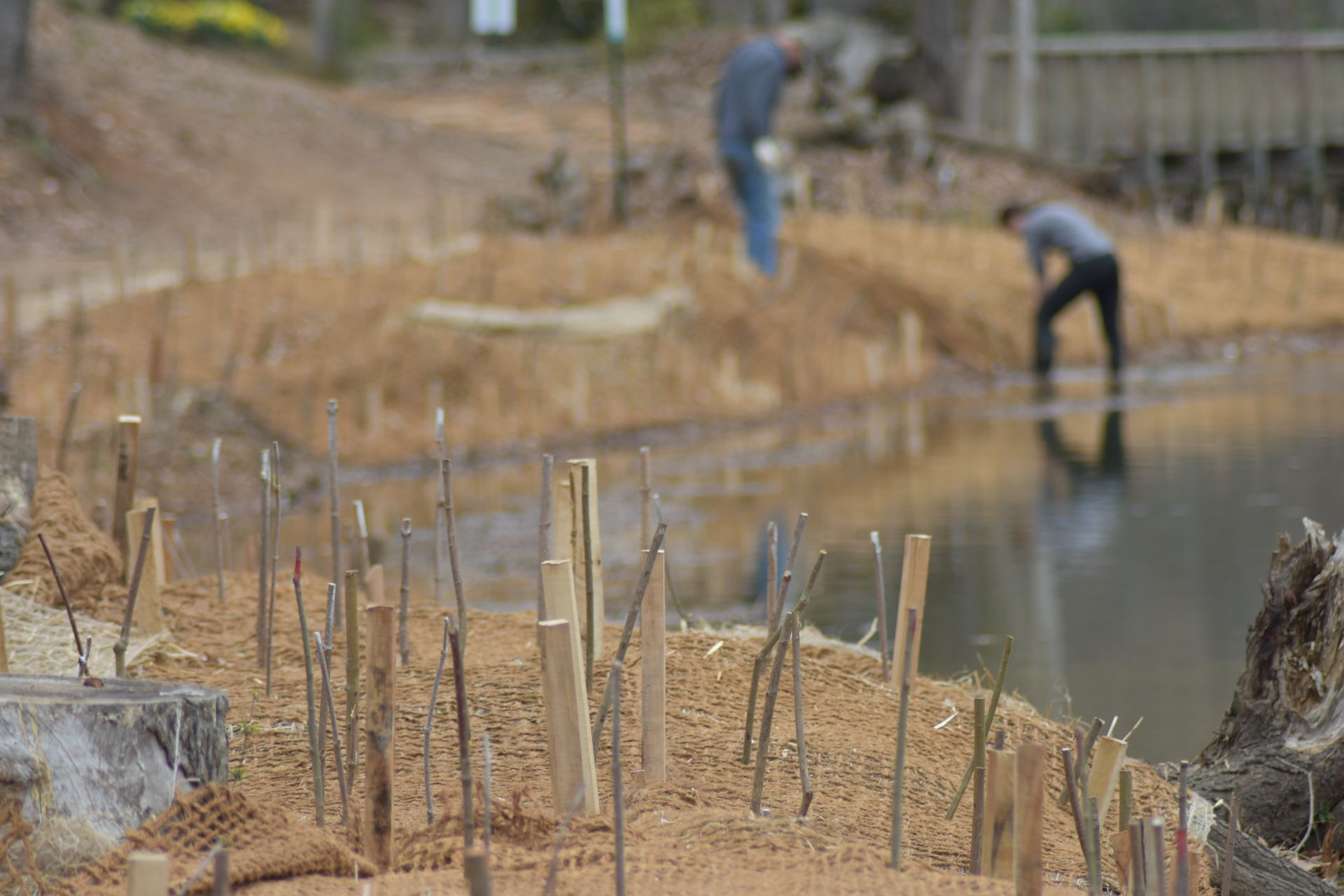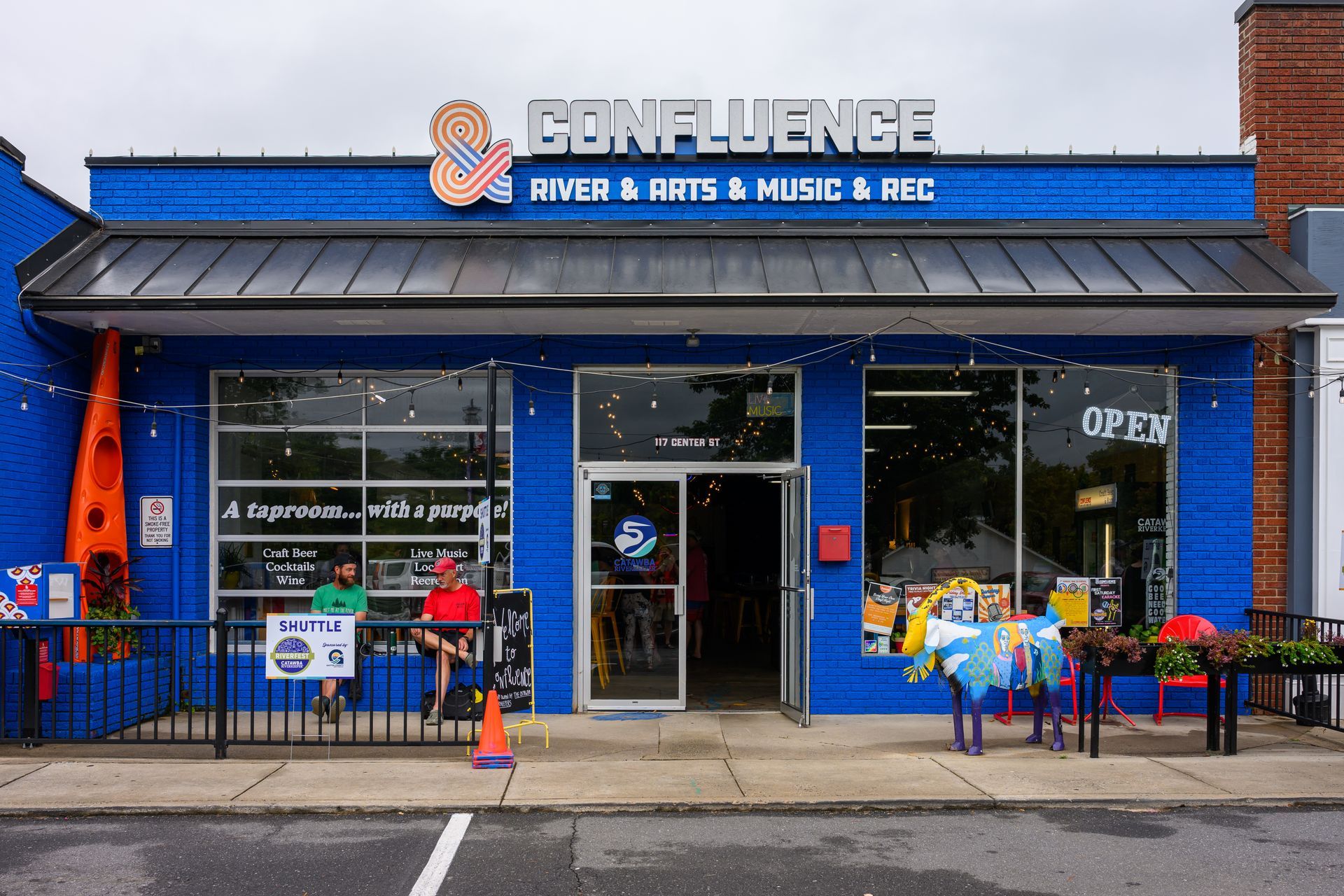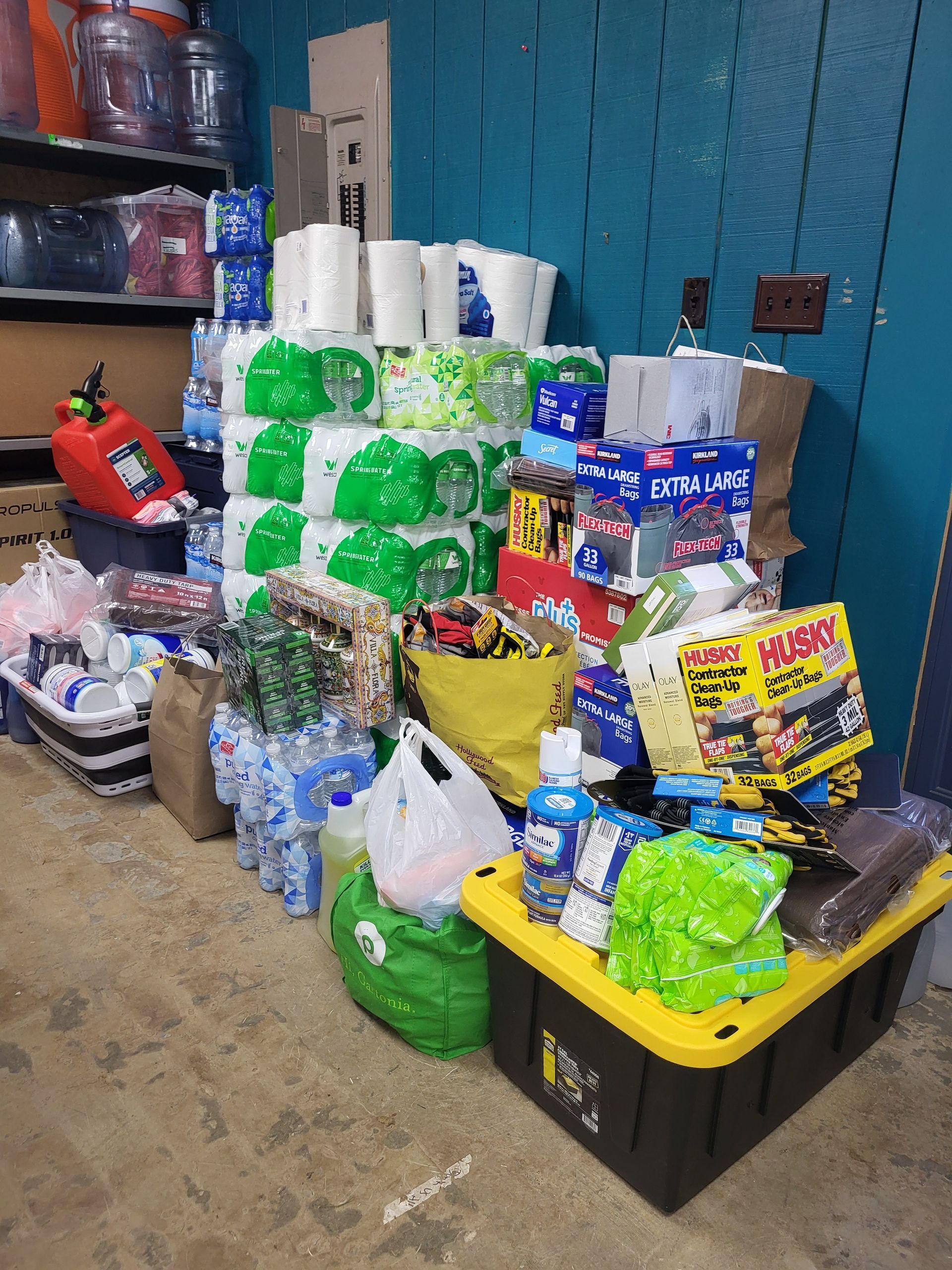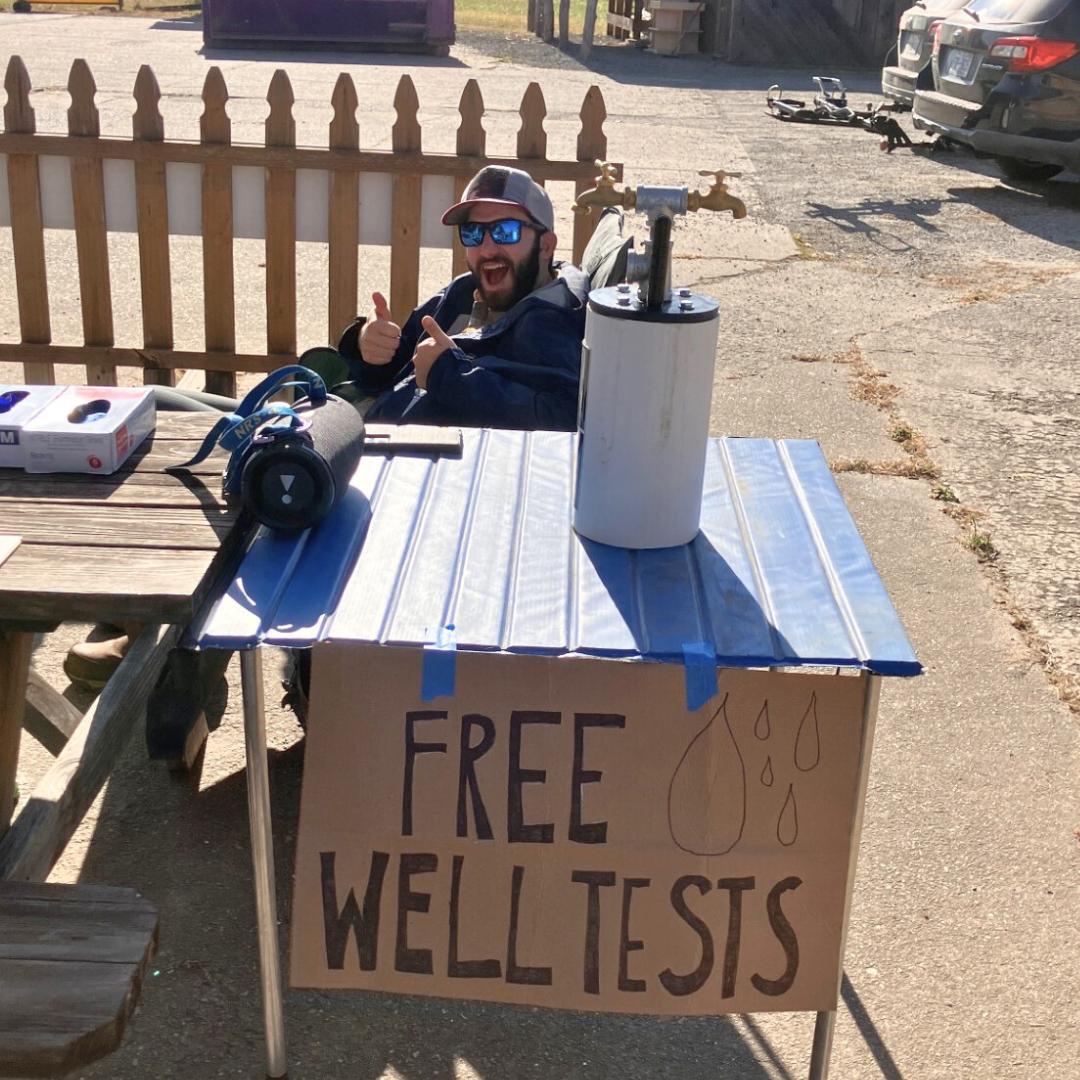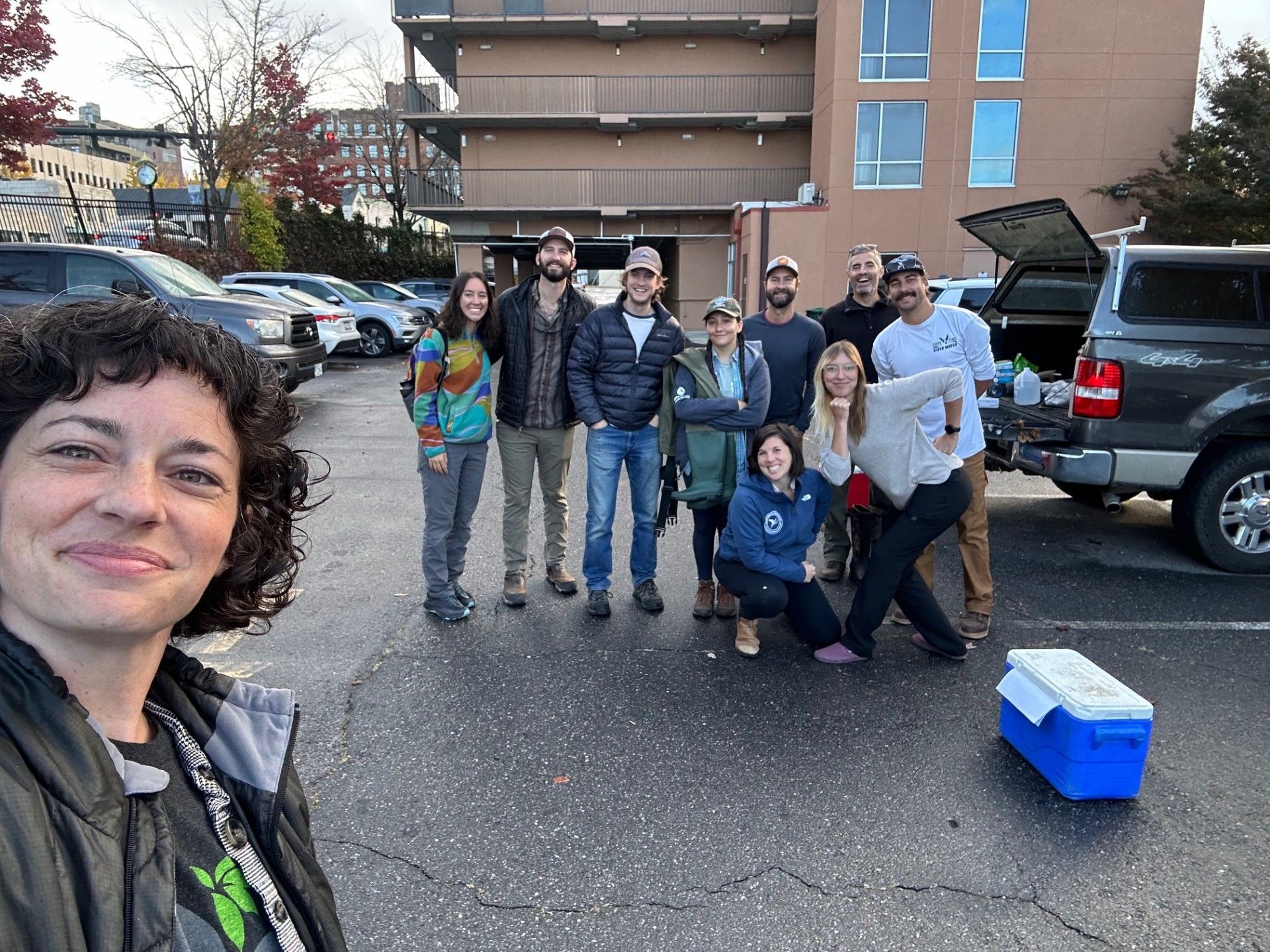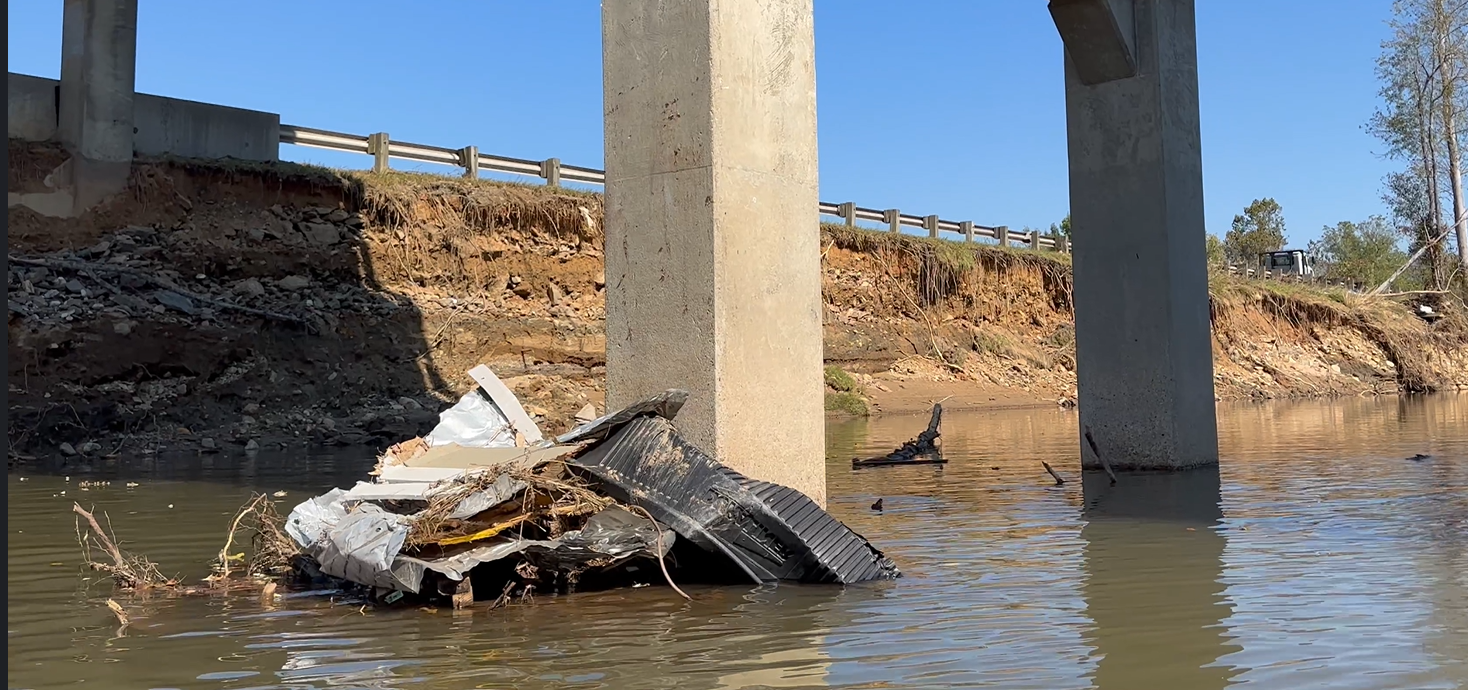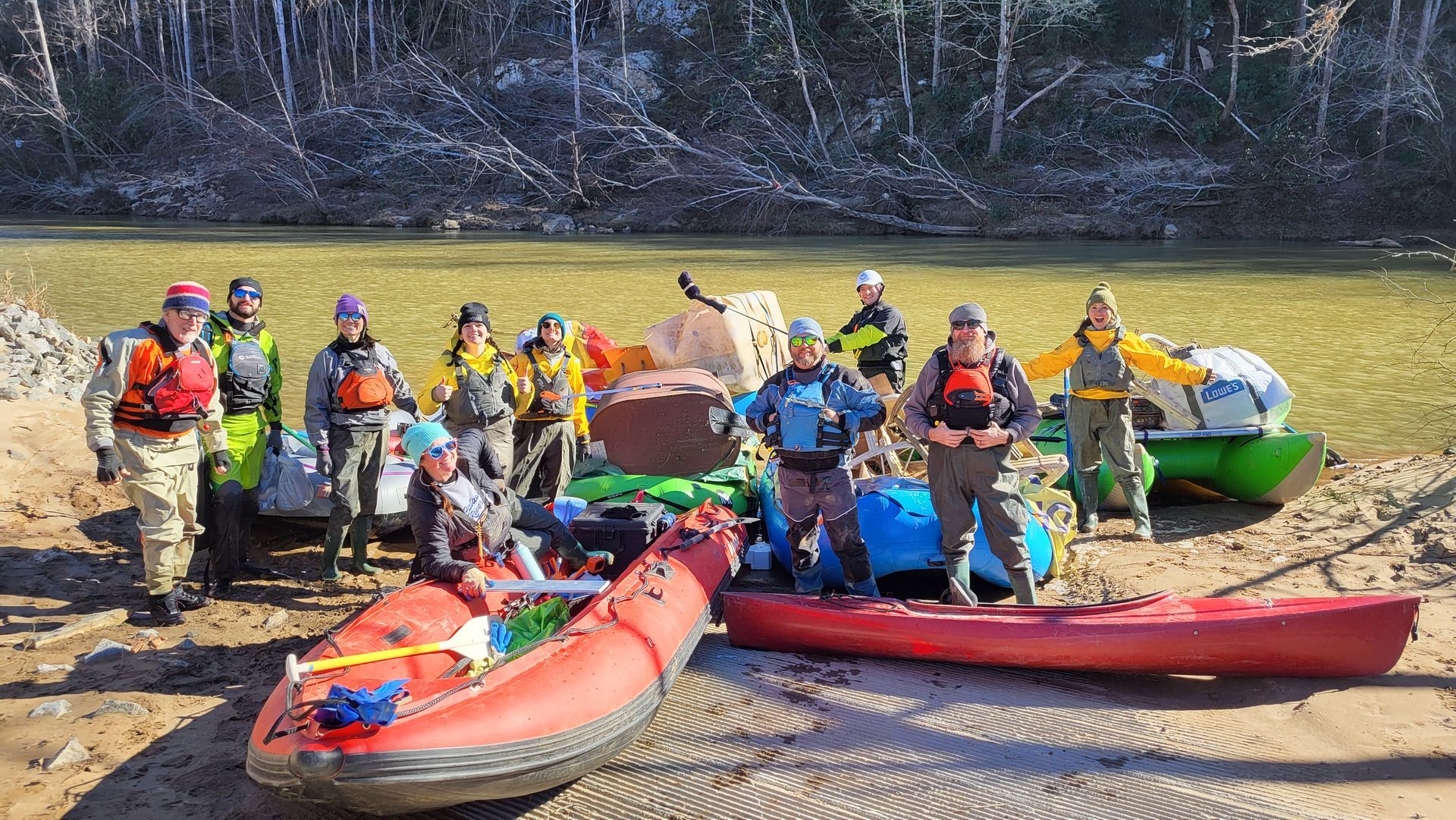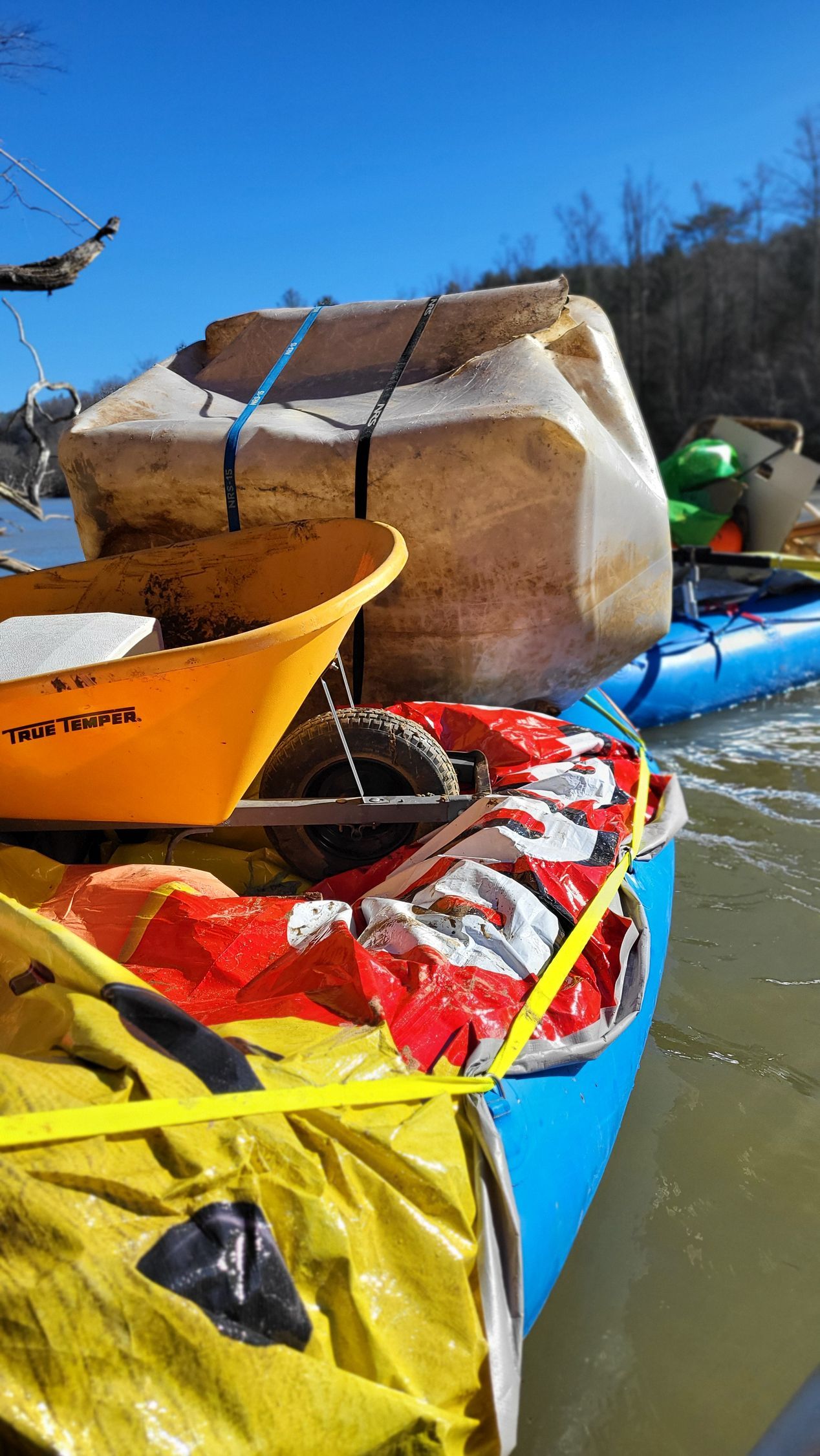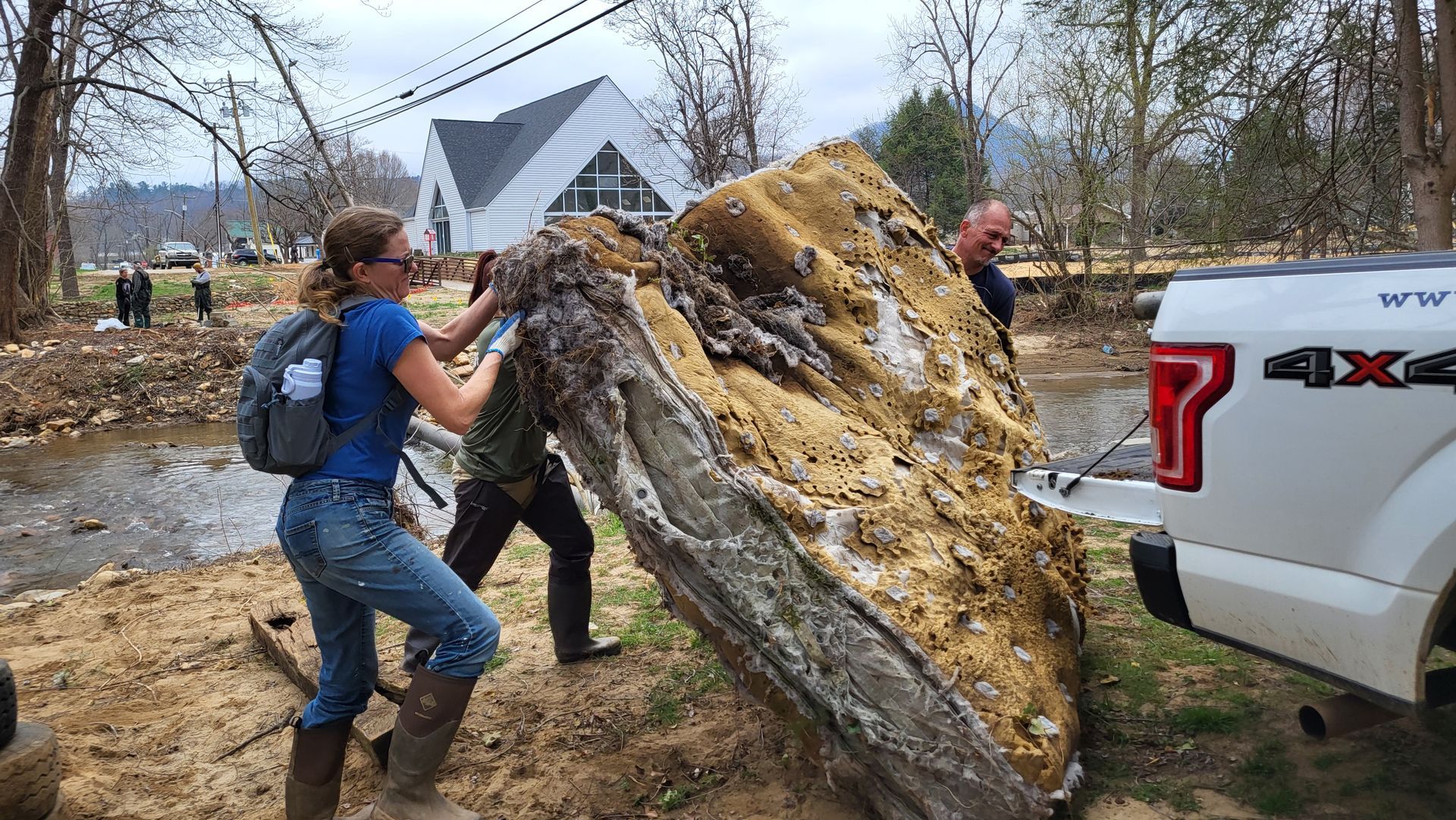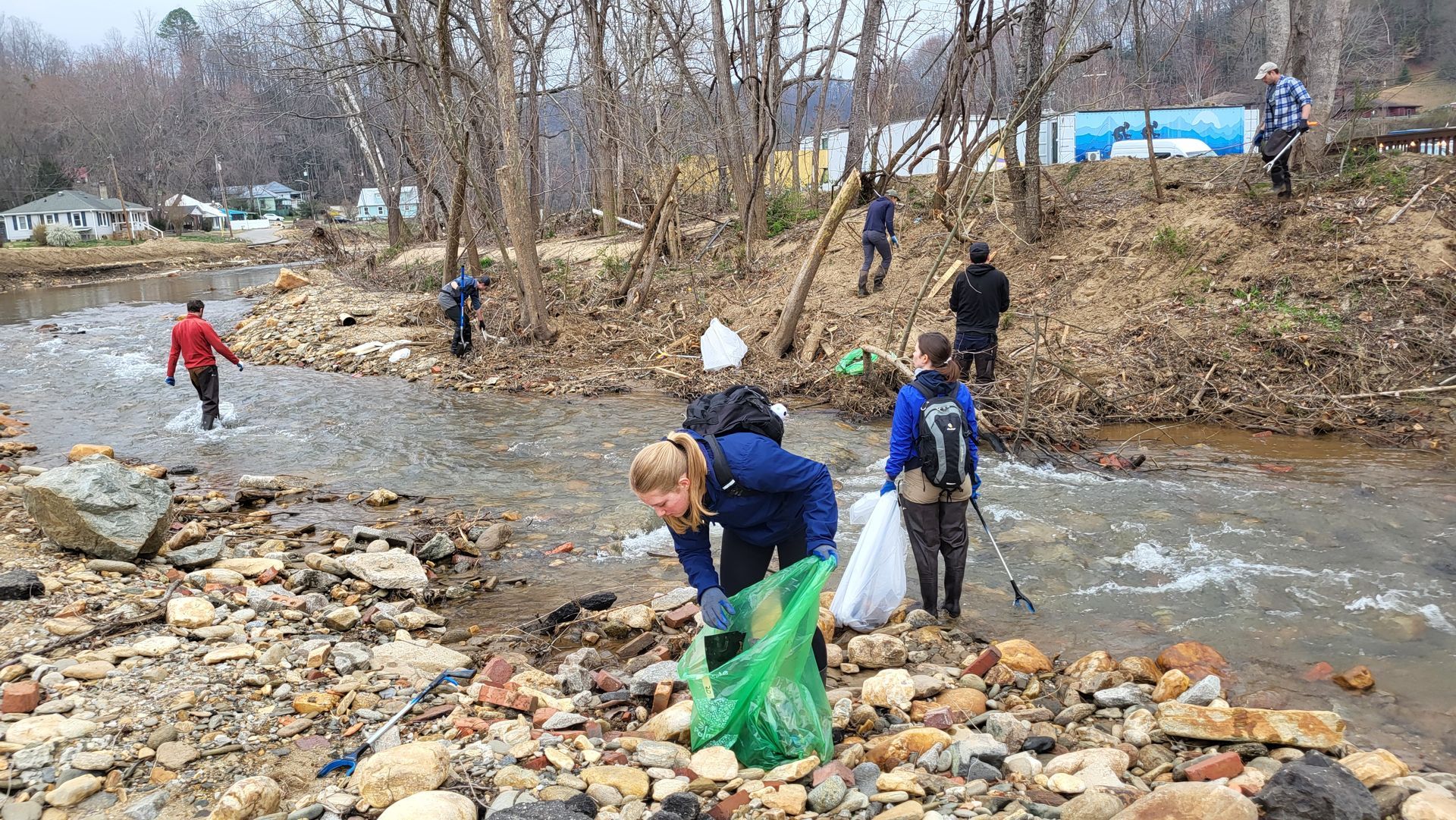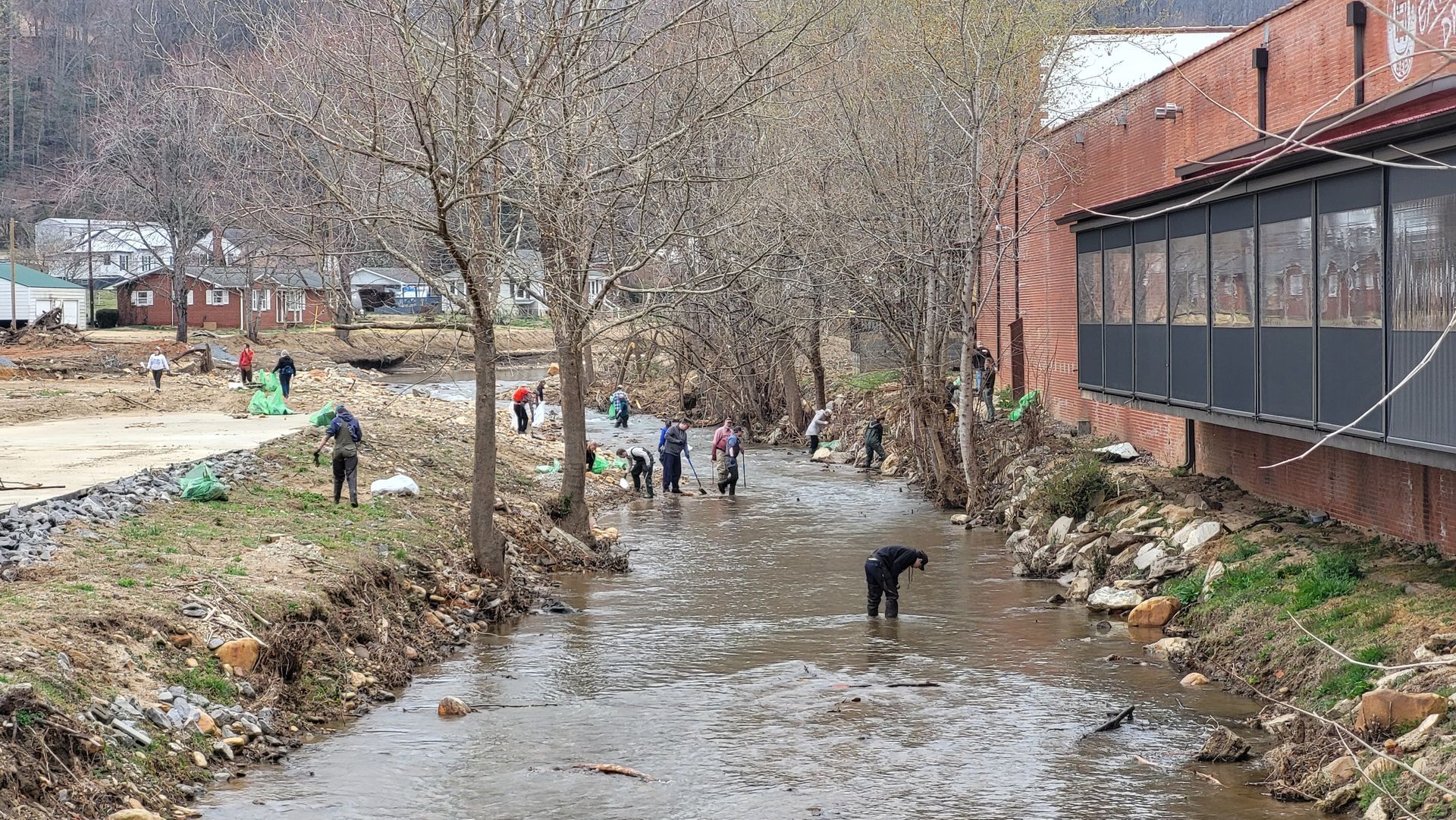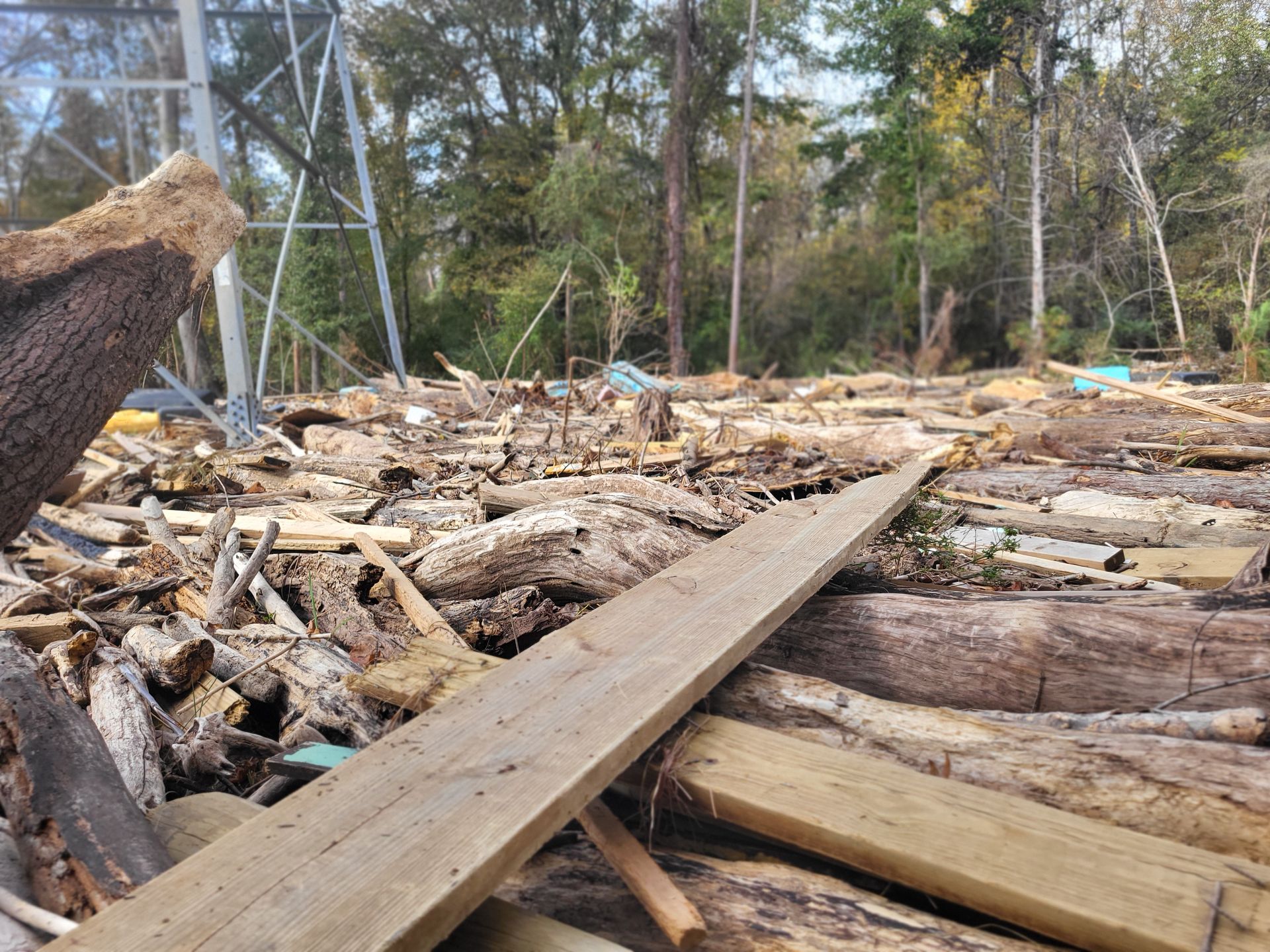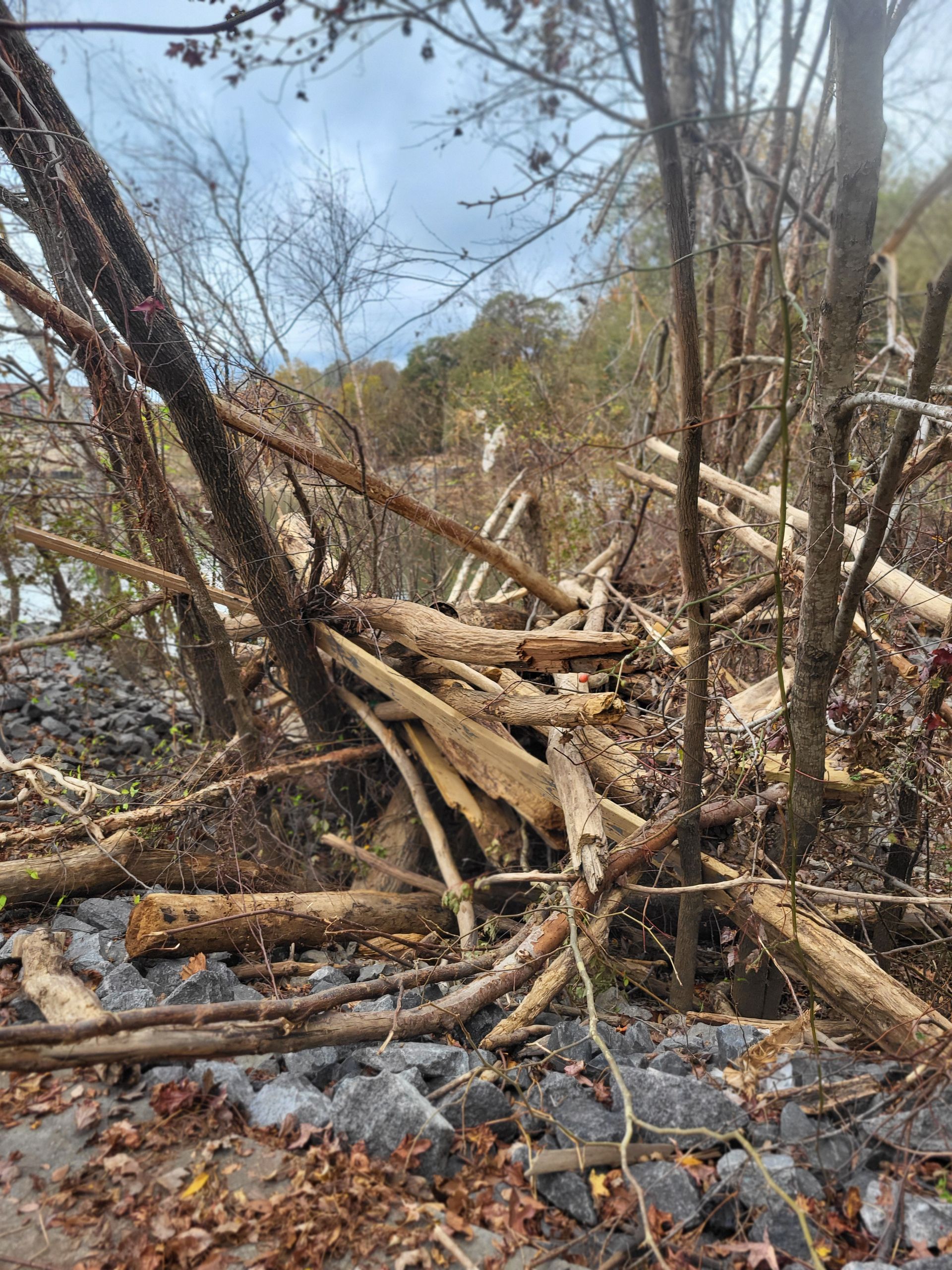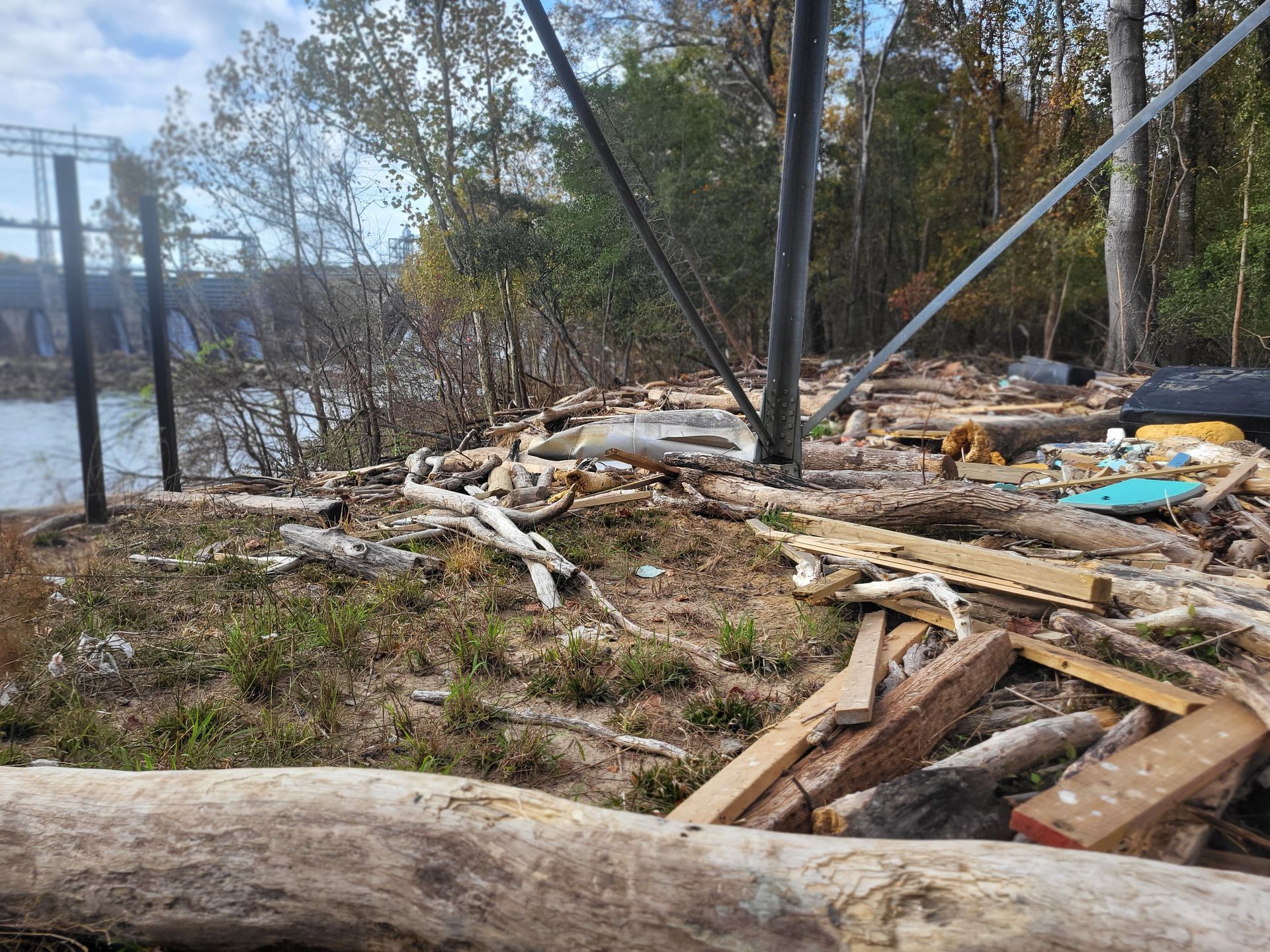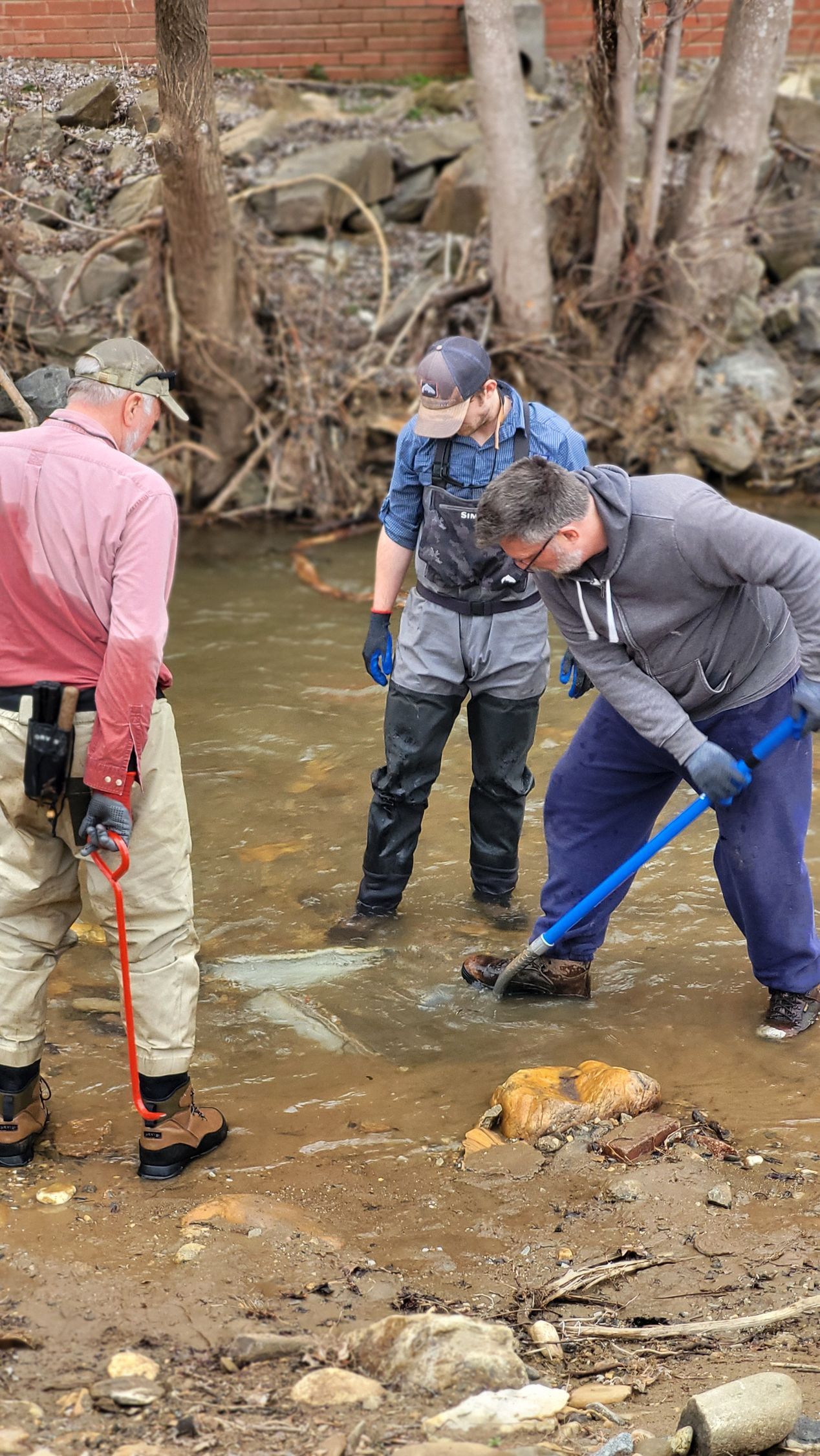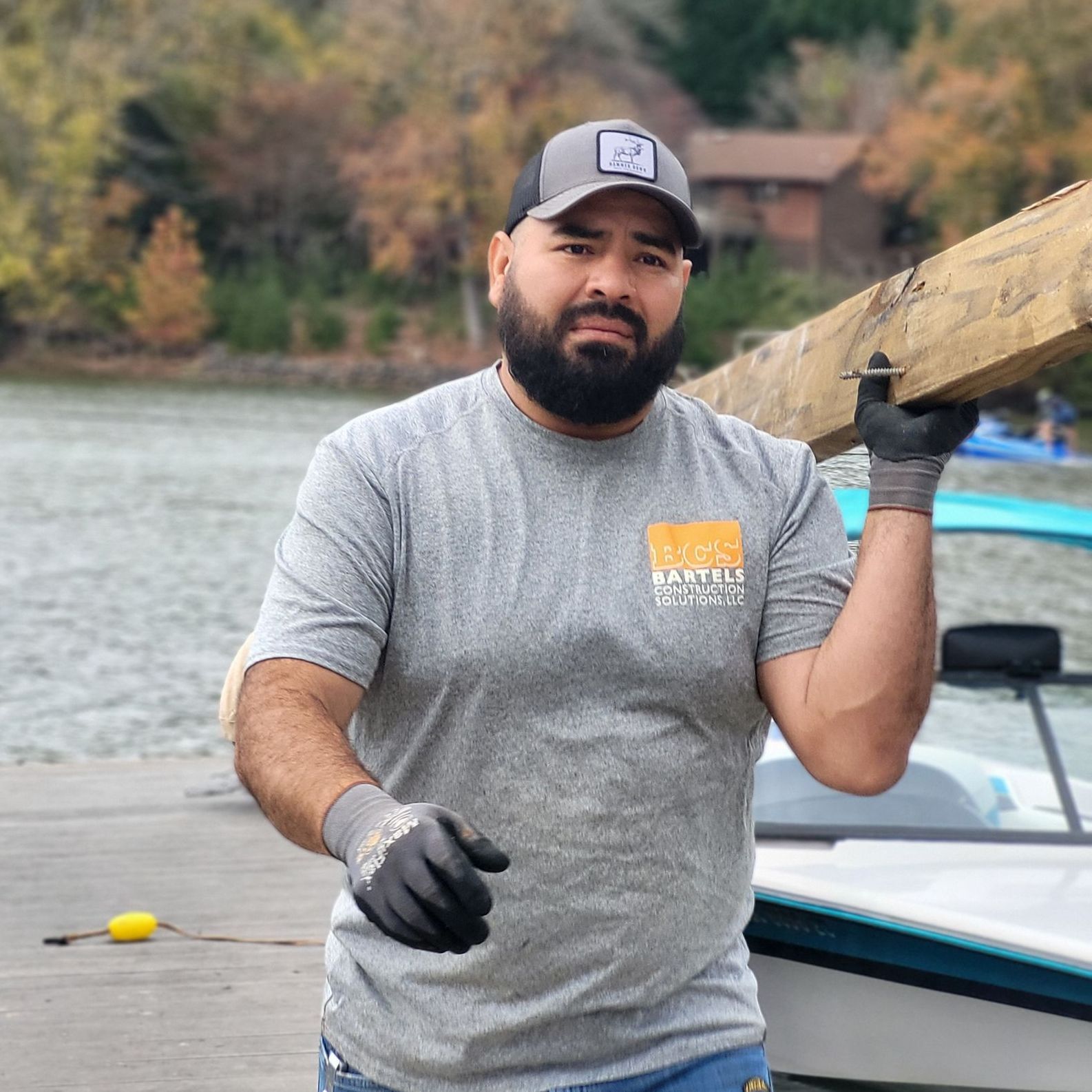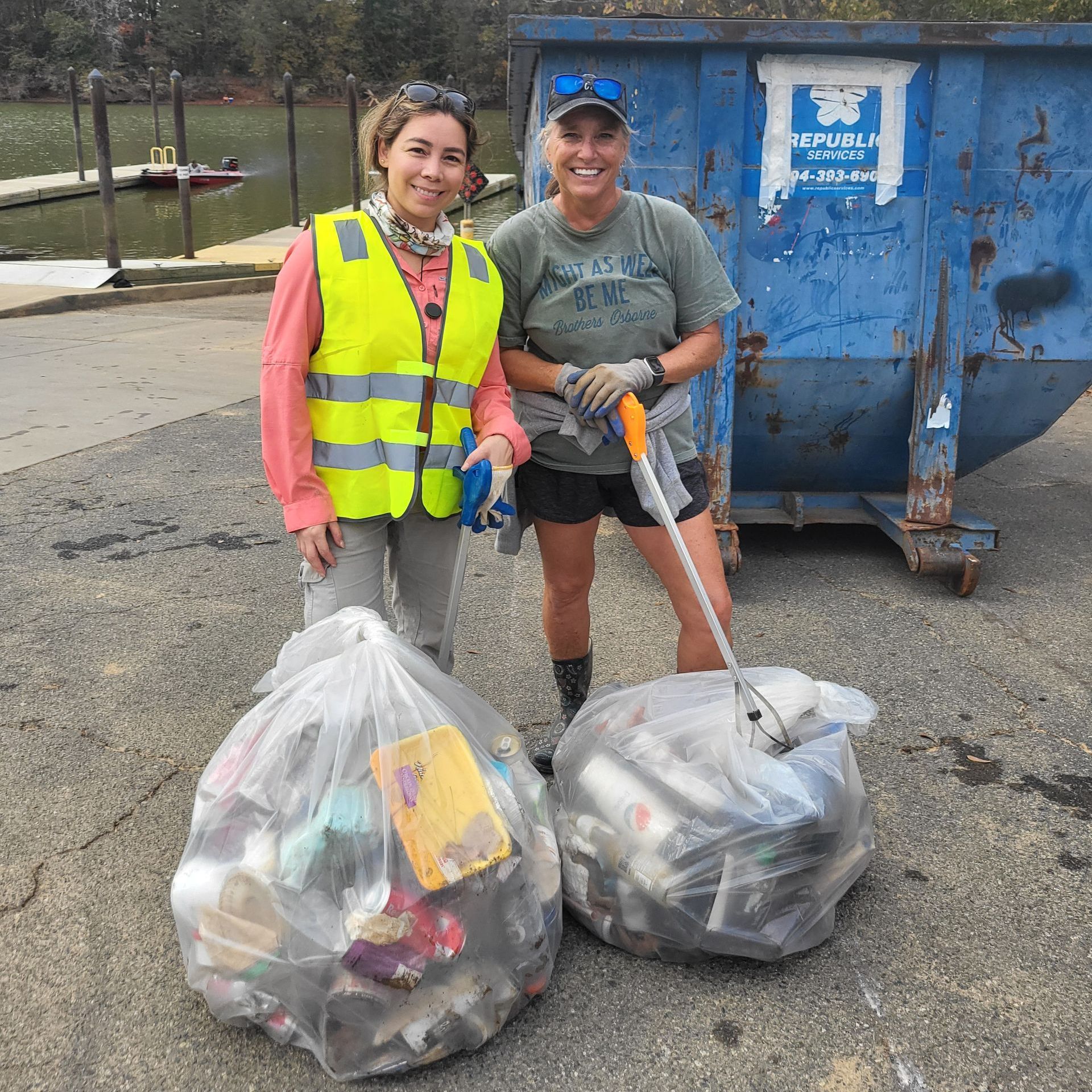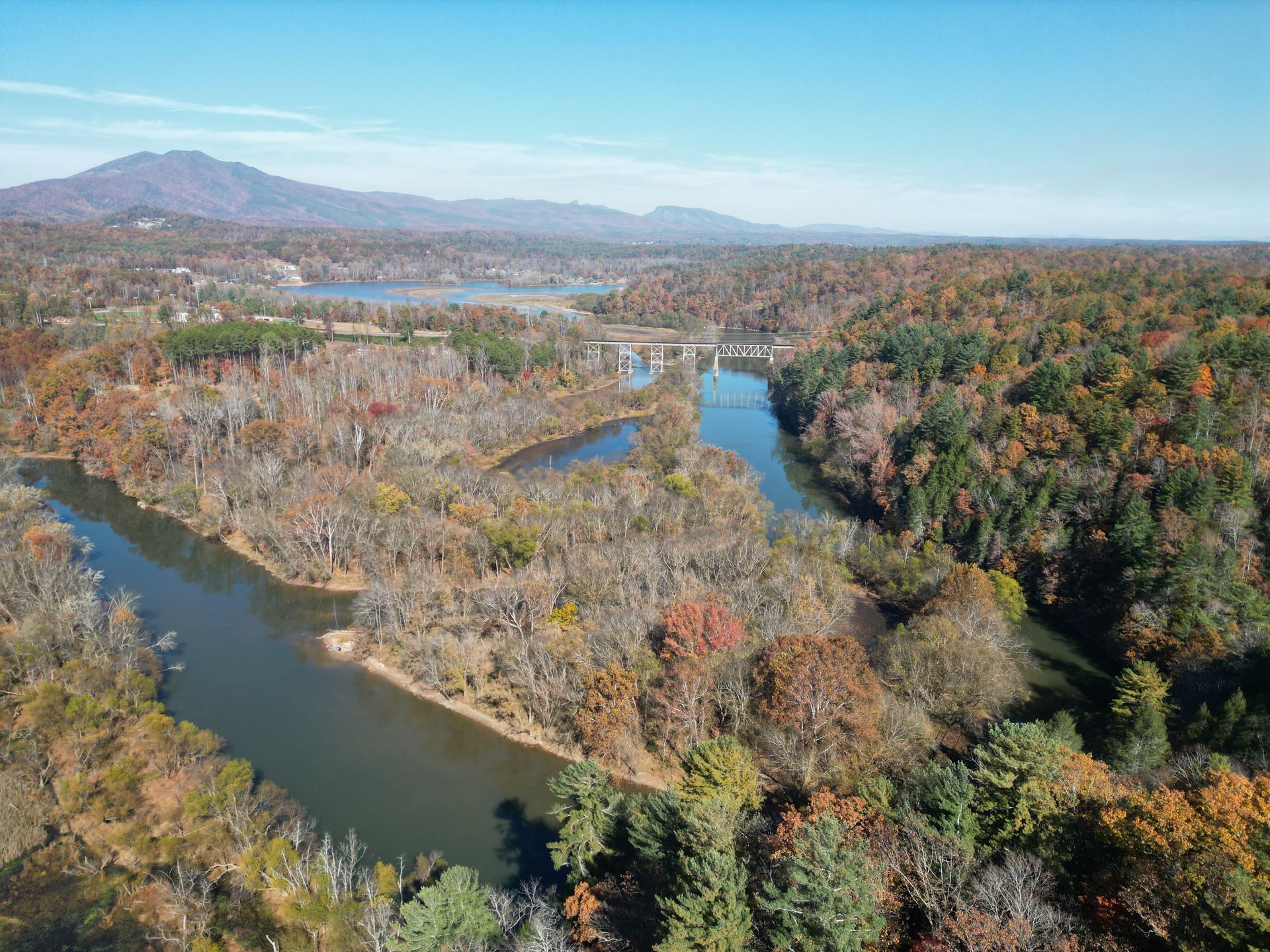One Year Later: Catawba Riverkeeper’s Response to Hurricane Helene
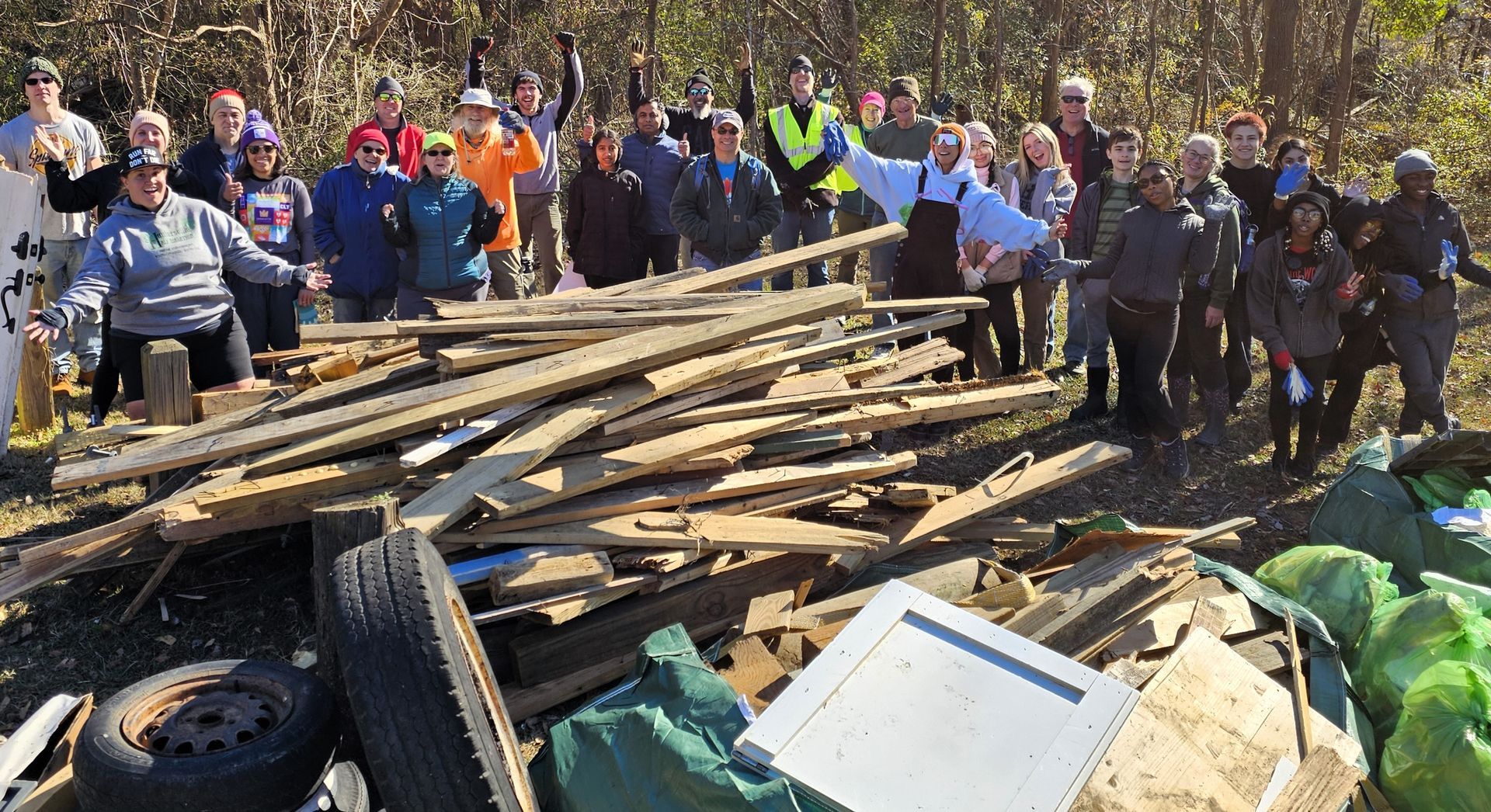
This month marks the first anniversary of Hurricane Helene, a storm that brought unprecedented flooding, infrastructure damage, and public health challenges across the Southeast, including the Catawba-Wateree River Basin. In the days, weeks, and months following the disaster, the Catawba Riverkeeper mobilized to provide relief and to help communities recover. Today, we reflect on those efforts and recommit to the work of building resilience for the future.
Supply Distribution
In the immediate aftermath, Catawba Riverkeeper coordinated with local partners to deliver emergency supplies to affected communities. Teams transported bottled water, food staples, hygiene kits, and cleaning materials donated by the public to supply hubs and airports. These efforts ensured that essential resources reached households experiencing prolonged disruptions in basic services.
Well Testing and Water Safety
Flooding potentially contaminated thousands of private wells, putting residents at risk of exposure to harmful bacteria and chemicals. Our staff and volunteers conducted well water testing across multiple counties, providing families with accurate results and guidance on safe water use. This work supported county health departments and helped protect public health during a critical time.
Partnership on Well Sanitization Training
For wells that tested positive for bacteria, were obviously flooded, or were too remote to test, Riverkeepers partnered with NCDHHS, Northeastern University, and the North Carolina Groundwater Association to build disinfection kits and instructional materials. These were distributed to county health departments as both practical resources and educational tools, highlighting how affordable interventions can strengthen community resilience in the face of extreme weather.
Debris Removal and Waterway Restoration
Hurricane Helene left behind widespread debris that clogged rivers, creeks, and shorelines. Catawba Riverkeeper organized cleanup operations to remove downed trees, trash, and hazardous materials that impeded natural flow and threatened aquatic ecosystems. Volunteers played a key role in restoring waterways, improving water quality, and reducing long-term risks for downstream communities. Together, we have removed over 85,000 lbs. of trash since Hurricane Helene swept through, with our largest cleanup effort scheduled for next weekend.
Continuing the Mission
Our response to Hurricane Helene highlights the importance of swift action and strong partnerships. We are continually impressed by the generosity of nonprofits, businesses, academic institutions, and local governments that go above and beyond to help. One year later, recovery continues, and we remain committed to protecting the Catawba-Wateree River Basin for all who depend on it. Thank you to all the volunteers and sponsors who stepped up during this unprecedented disaster.
What You Can Do
As we reflect on the lessons of Hurricane Helene, CRF invites community members to take part in building a stronger, more resilient future:
- Donate: Contributions directly support Catawba Riverkeeper’s programs that protect clean water, strengthen preparedness, and provide critical assistance when disasters strike. Click here to give a gift today!
- Volunteer: Join Catawba Riverkeeper for Riversweep on Saturday, October 4th, the annual basin-wide cleanup event. This is an opportunity to make a tangible impact by removing trash and debris from local waterways while connecting with neighbors who share a commitment to clean water. While signups closed yesterday, many sites have walk-up spots available. Click here to see which sites are accepting walk-up volunteers.
- Stay Aware and Be Prepared: As I’m writing this, there is another threatening hurricane in the Atlantic. Many organizations, including FEMA and your county's office of emergency management, provide critical guidance on how to prepare and what to do in the face of natural disasters. Know the risks in your area and have a plan for your family.
Together, we can honor the progress made since Hurricane Helene and continue the work of ensuring safe, clean water for generations to come.
